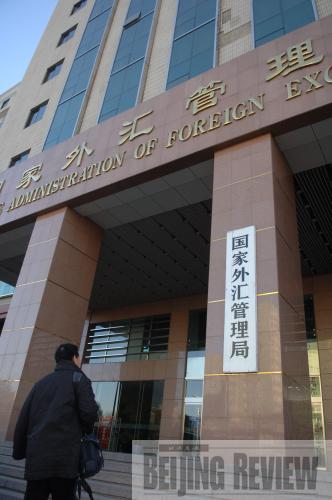|
 |
|
GOING GLOBAL: China's foreign exchange uthorities are pressing ahead with internationalization of the renminbi in response to the uncertainties of the global financial system (SUN JUN) |
While it remains to be seen how the sweeping financial crisis will change the world, it is already reshaping global monetary architecture. The U.S. dollar is losing strength, making way for others to take center stage. The question for China is how it should align itself with the unfolding shift. Huang Yiping, a professor with the China Center for Economic Research, Peking University, shared his opinions in an article recently published in Caijing magazine. Edited excerpts follow:
The crisis is likely to herald the end to an era in which the U.S. dollar has dominated the global financial system. Though it is not about to lose its reserve status completely in the foreseeable future, a significant shift in the balance of global monetary power is surely on the way.
China has every reason to keep an eye on the shift given how closely its own economy is tied to the greenback. Primarily, the country takes the dollar as a benchmark for its own foreign exchange policies and has held a bulk of forex reserves in dollar-denominated assets. In addition, as China opens up in a cautious embrace of the global financial powers, it needs to be clear of what is going on out there.
It seems the dollar derives its woes from the crisis, but a root cause lies in the inherent Triffin Dilemma. In a famous warning to the Congress in 1960, the economist Robert Triffin argued that global economic expansion increased demands for the greenback to make international payments and store wealth. These could only be supplied to foreigners by America running a current account deficit and issuing dollar-denominated obligations to fund it. But Triffin cautioned that the build-up of deficits might cause foreigners to fear that the greenback might be forced to devalue.
Finding a way out
It is widely believed that the dollar will still prevail as a reserve currency in the coming years, though its importance would fade fast. After all, finding a genuine alternative will prove difficult. The weakness of the euro, the sterling and the Japanese yen were no less acute, and the currencies of emerging markets lack the scope of use.
One encouraging sign is that the world is diversifying from overdependence on one currency. According to data from the International Monetary Fund (IMF), emerging economies parked 60 percent of their forex reserves in U.S. currency in early 2009, down from more than 70 percent in 1999.
| 